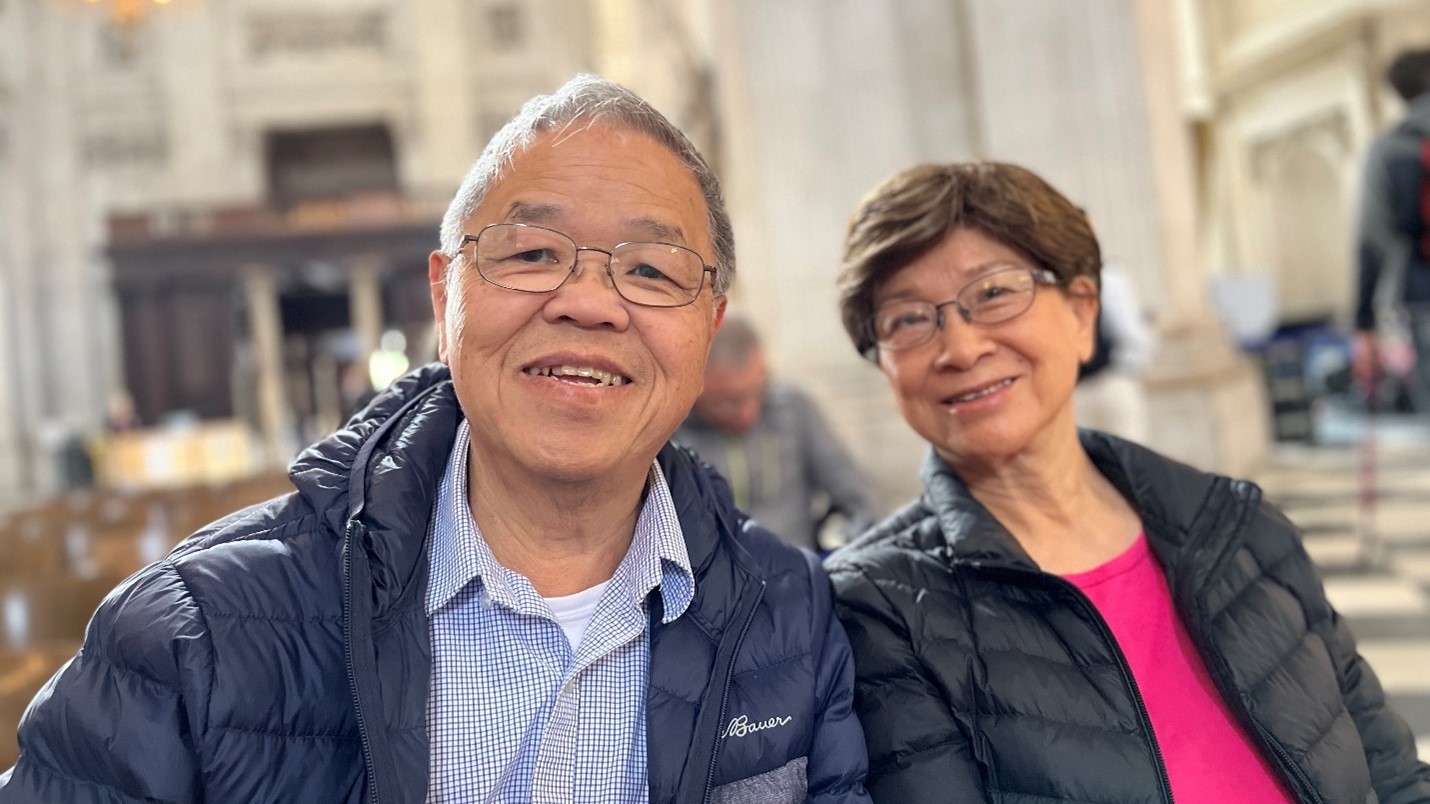December 20, 2023
Written by Zach Read

Earlier this semester, Leaf Huang, Fred Eshelman Distinguished Professor, Division of Pharmacoengineering and Molecular Pharmaceutics (DPMP), and a Professor in the joint UNC-NC State Department of Biomedical Engineering, taught his last class at Carolina.
Leaf is retiring after a long career—one dedicated to advancing the understanding and treatment of cancer, improving the lives of cancer patients, and sharing his passion for the intellectual challenges of molecular pharmaceutics and drug delivery with his students.
“My experience at UNC has been fantastic,” Leaf says.
Leaf began his academic career at the University of Tennessee in the 1970s and continued at the University of Pittsburgh, before he was recruited by Dean Bob Blouin to Carolina in 2005 to lead the School’s new Division of Molecular Pharmaceutics.
“Dean Blouin had a vision and was committed to pursuing NIH-funded research,” Leaf shares. “That was music to my ears.”
Leaf’s relationships with his students are among the many aspects he will miss about his work.
“I love my students,” says Leaf. “By God’s grace, my students love me too. We have a very good relationship. Even to this day, my former students still call me up and discuss scientific problems with me and ask me advice about working with and motivating their students. I’m a senior professor and have encountered many problems. I have some wisdom to share.”
Leaf’s accomplishments with respect to research, innovation, and teaching are vast: he is author or co-author of more than 600 papers, inventor or co-inventor of 22 US and foreign patents, co-founder of six biotech startups, and mentor to countless students over nearly five decades in the classroom and the lab.
Most importantly, Leaf has had a profound impact on medicine, the treatment of cancer, and patients undergoing cancer treatments.
“From the very beginning of my interest in pharmacy, I recognized cancer as a significant and serious human disease, one of the leading causes of death, and I wanted to address that,” he explains. “It’s an intellectual challenge.”
Leaf’s research career centered around liposomes and immunoliposomes for drug delivery. He sought to understand how tumor cells—and the normal, healthy cells they recruit—work together, and how anti-cancer drugs can be delivered to them.
“Tumor cells were once normal cells and they transformed from normal cells to cancer cells,” Leaf says. “I asked myself, ‘How does this transformation take place and how can we overcome the barriers to send drugs there? Or, more importantly, how do we wake up the immune system so the immune system sees them and kills them?’”
This interest led to one of several important discoveries of his career: the activity of polyethylene glycol, or PEG, in prolonging the circulation time of liposomes. Leaf was able to successfully discover a way to find the tumor vessel and penetrate the tumor with anti-cancer drugs.
Over his career, Leaf has been among the most highly cited and influential researchers in his field in the US, and his impact promises to continue even as he retires. He has several formulations in clinical trials, including a vaccine in a Phase 3 clinical trial. Recently, Leaf and his collaborators published a paper in Nature Biotechnology showing the promise of targeting and killing tumor-associated bacteria rather than the tumor cell itself.
“Instead of directly delivering drugs against the cancer cells themselves, we target the bacteria,” Leaf says. “Targeting the bacteria will automatically get the attention of the immune system. It’s actually the immune system that eventually controls the cancer, not the drug, so we’re enabling the immune system to do its work.”
Leaf shares that every day, over the course of his career, he was driven by the intellectual challenges of his work. He was fascinated by the problems presented by cancer and understanding how tumor cells work. He could have pursued other ways to apply his knowledge for a living, but he chose to continue to employ scientific rigor in the pursuit of one of humanity’s greatest health challenges.
To young scientists who want to continue to advance efforts to treat cancer, he shares, “You have to have passion about what you do. There are many other jobs where you can have a more comfortable life, but in this work you can make discoveries and explore new alternatives to benefit the patient. That’s always my goal.”
Latest News

Dean Angela Kashuba receives Carolina Alumni Faculty Service Award

RASP poster presentations capture student research


